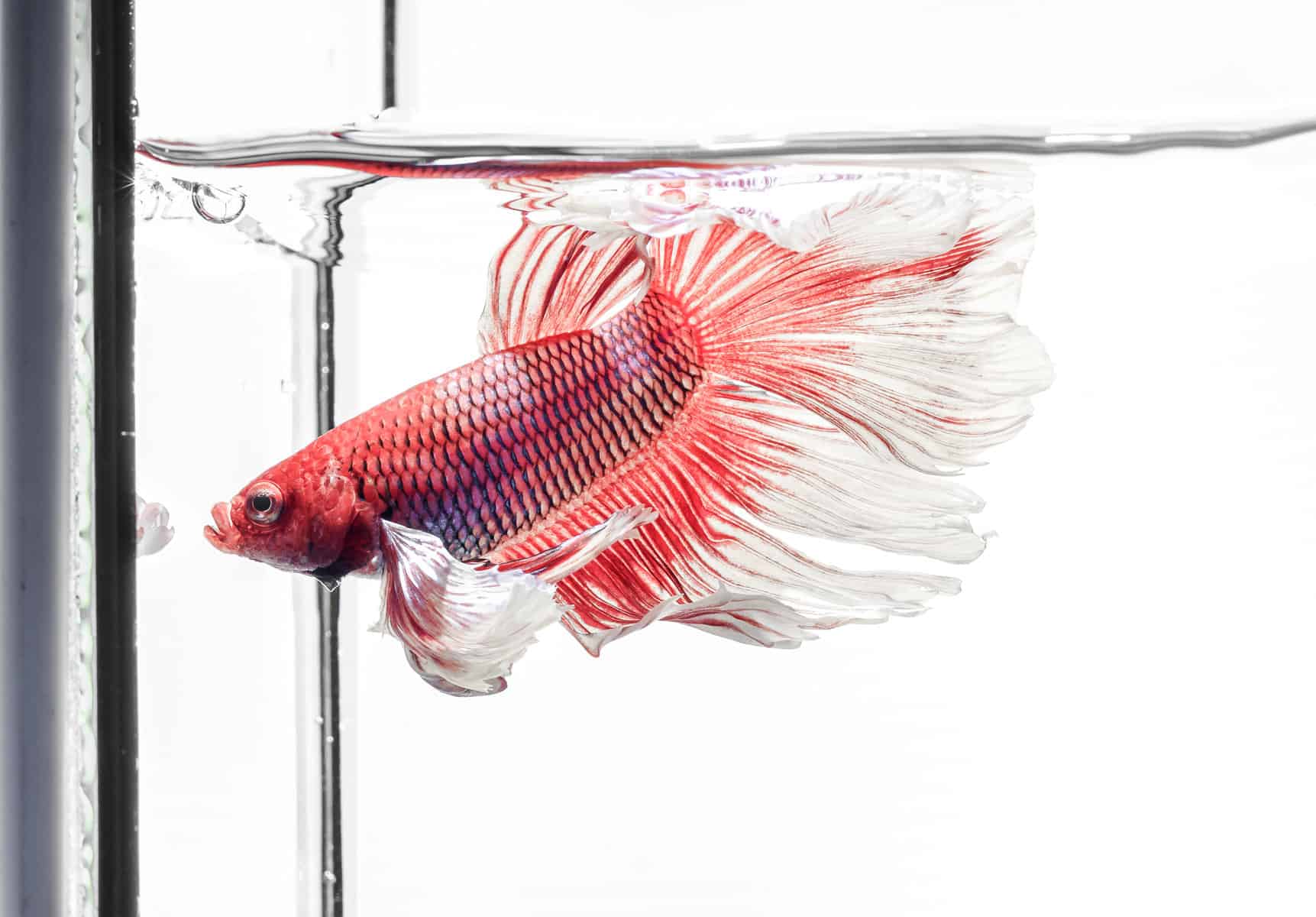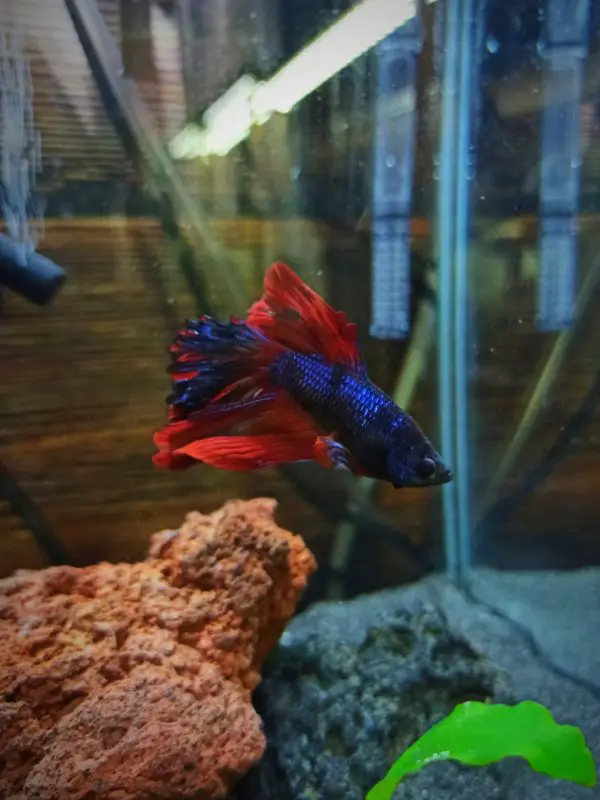Betta fish are a popular choice for aquarium enthusiasts due to their vibrant colors and unique personalities. However, maintaining a healthy environment for these fish requires careful attention to their water quality. One question that often arises is whether it is safe to use tap water for betta fish after leaving it overnight. In this article, we will explore the potential risks and benefits of using overnight tap water for your betta fish.
When it comes to fish care, water quality is paramount. One common concern is the presence of chlorine in tap water, which can be harmful to fish. Some aquarists opt to leave tap water out overnight in an attempt to allow the chlorine to dissipate before adding it to their aquarium. But is this really effective? Let’s dive into the details and find out if using overnight tap water is a safe option for your betta fish.
Yes, it is safe to use tap water for Betta fish after leaving it overnight. This is because the chlorine and other harmful chemicals in tap water will dissipate after being exposed to the air for a few hours. However, it is always recommended to use a water conditioner to neutralize any remaining chemicals and to maintain a healthy environment for your Betta fish.

Is It Safe to Use Tap Water for Betta Fish After Leaving It Overnight?
If you are a pet owner, you likely know that keeping your pet healthy is of utmost importance. If you own a betta fish, you may be wondering if it is safe to use tap water for your fish after leaving it overnight. This is an important question to consider, as the quality of the water in your betta fish’s tank can impact their overall health and well-being.
Tap Water: The Pros and Cons
Tap water is a convenient and inexpensive way to fill your betta fish’s tank, but it does come with its own set of pros and cons. One of the benefits of using tap water is that it is readily available, and you don’t have to worry about purchasing expensive bottled water for your fish. Additionally, tap water is often treated with chlorine and other chemicals that can help to eliminate harmful bacteria and other contaminants.
However, there are also some downsides to using tap water. One of the main concerns is the presence of chlorine, which can be harmful to fish if not properly removed. Additionally, tap water may contain other chemicals and contaminants that can be harmful to your betta fish’s health.
The Benefits of Using Tap Water for Betta Fish
Despite the potential risks associated with tap water, there are some benefits to using it for your betta fish. For one, it is an affordable and convenient option that can save you money in the long run. Additionally, tap water may contain minerals and nutrients that can be beneficial to your betta fish’s health.
The Risks of Using Tap Water for Betta Fish
On the other hand, using tap water can also pose some risks to your betta fish. As previously mentioned, tap water may contain chlorine and other chemicals that can be harmful to your fish’s health. Additionally, tap water may contain heavy metals and other contaminants that can negatively impact the water quality in your betta fish’s tank.
Leaving Tap Water Overnight: Does It Make a Difference?
One common myth surrounding tap water and betta fish is that leaving the water overnight can help to remove harmful chemicals and contaminants. While it is true that some chemicals, such as chlorine, can evaporate over time, leaving water overnight is not a foolproof method for making tap water safe for your betta fish.
The Benefits of Leaving Tap Water Overnight
One benefit of leaving tap water overnight is that it can help to reduce the presence of chlorine in the water. Additionally, allowing the water to sit overnight can help to regulate the water temperature, making it easier to acclimate your betta fish to their new environment.
The Risks of Leaving Tap Water Overnight
Despite these potential benefits, there are also some risks associated with leaving tap water overnight. For one, leaving water out for an extended period of time can increase the risk of bacterial growth, which can be harmful to your betta fish. Additionally, leaving water out for too long can cause it to become stagnant, which can negatively impact the water quality in your fish’s tank.
Conclusion: Is It Safe to Use Tap Water for Betta Fish After Leaving It Overnight?
In conclusion, using tap water for your betta fish can be both beneficial and risky. While tap water is convenient and affordable, it can also contain harmful chemicals and contaminants that can negatively impact your fish’s health. Similarly, leaving tap water overnight can help to reduce the presence of chlorine, but it can also increase the risk of bacterial growth and stagnant water.
Ultimately, the best course of action is to use a water conditioner specifically designed for betta fish to help remove harmful chemicals and contaminants from tap water. Additionally, it is important to regularly monitor the water quality in your betta fish’s tank to ensure that it remains safe and healthy for your fish to live in.
Frequently Asked Questions
Betta fish are a popular pet choice, but many owners wonder if tap water is safe to use for their fish. In this article, we will answer five common questions about using tap water for betta fish after leaving it overnight.
Is tap water safe for betta fish?
Tap water can be safe for betta fish, but there are some precautions you should take. Most tap water contains chlorine and other chemicals that can harm fish. The best way to make tap water safe for betta fish is to let it sit overnight. This allows the chlorine to evaporate. After letting the water sit overnight, you can use it for your betta fish.
However, if your tap water contains high levels of chlorine or other harmful chemicals, it may not be safe for your betta fish, even after letting it sit overnight. In this case, you may need to use a water conditioner or consider using bottled water instead.
How long should I let the tap water sit before using it for my betta fish?
It’s generally recommended to let tap water sit for at least 24 hours before using it for your betta fish. This allows enough time for the chlorine and other chemicals to evaporate. If you’re in a hurry, you can use a water conditioner to make the water safe for your betta fish immediately. However, it’s always best to let the water sit overnight if possible.
If your tap water has high levels of chlorine or other harmful chemicals, you may need to let it sit for longer than 24 hours to ensure it’s safe for your betta fish.
Can I use tap water straight from the faucet for my betta fish?
It’s not recommended to use tap water straight from the faucet for your betta fish. Most tap water contains chlorine and other chemicals that can harm fish. It’s best to let the water sit overnight to allow the chlorine to evaporate. After letting the water sit overnight, you can use it for your betta fish.
If your tap water contains high levels of chlorine or other harmful chemicals, you may need to use a water conditioner or consider using bottled water instead.
What if I don’t have time to let the tap water sit overnight?
If you don’t have time to let the tap water sit overnight, you can use a water conditioner to make the water safe for your betta fish immediately. Water conditioners neutralize chlorine and other chemicals, making the water safe for fish. Be sure to follow the instructions on the water conditioner carefully.
However, it’s always best to let tap water sit overnight if possible. This ensures that any harmful chemicals have evaporated before you add the water to your betta fish tank.
Is bottled water safe for betta fish?
Bottled water can be safe for betta fish, but it’s important to choose the right type of water. Look for bottled water that is labeled as purified or distilled. Avoid bottled water that contains added minerals or other additives.
Keep in mind that using bottled water can be more expensive than using tap water. If your tap water is safe for your betta fish after letting it sit overnight, it may be more economical to use tap water instead.

How to Condition Water for Betta Fish?
In conclusion, it is generally safe to use tap water for betta fish after letting it sit overnight. This is because the chlorine and other chemicals that are harmful to fish will evaporate during this time. However, it is important to note that this does not guarantee that the water is completely safe for your fish. It is still recommended to use a water conditioner to remove any remaining chemicals and to test the water regularly to ensure it is within safe levels for your betta.
Overall, providing a safe and healthy environment for your betta should always be a top priority. While tap water can be used, it is important to take the necessary precautions to ensure the water is safe for your fish. By using a water conditioner and regularly testing the water, you can help to maintain a clean and healthy environment for your betta to thrive in. Remember, a happy and healthy betta is a joy to watch and can bring years of enjoyment to your life.
